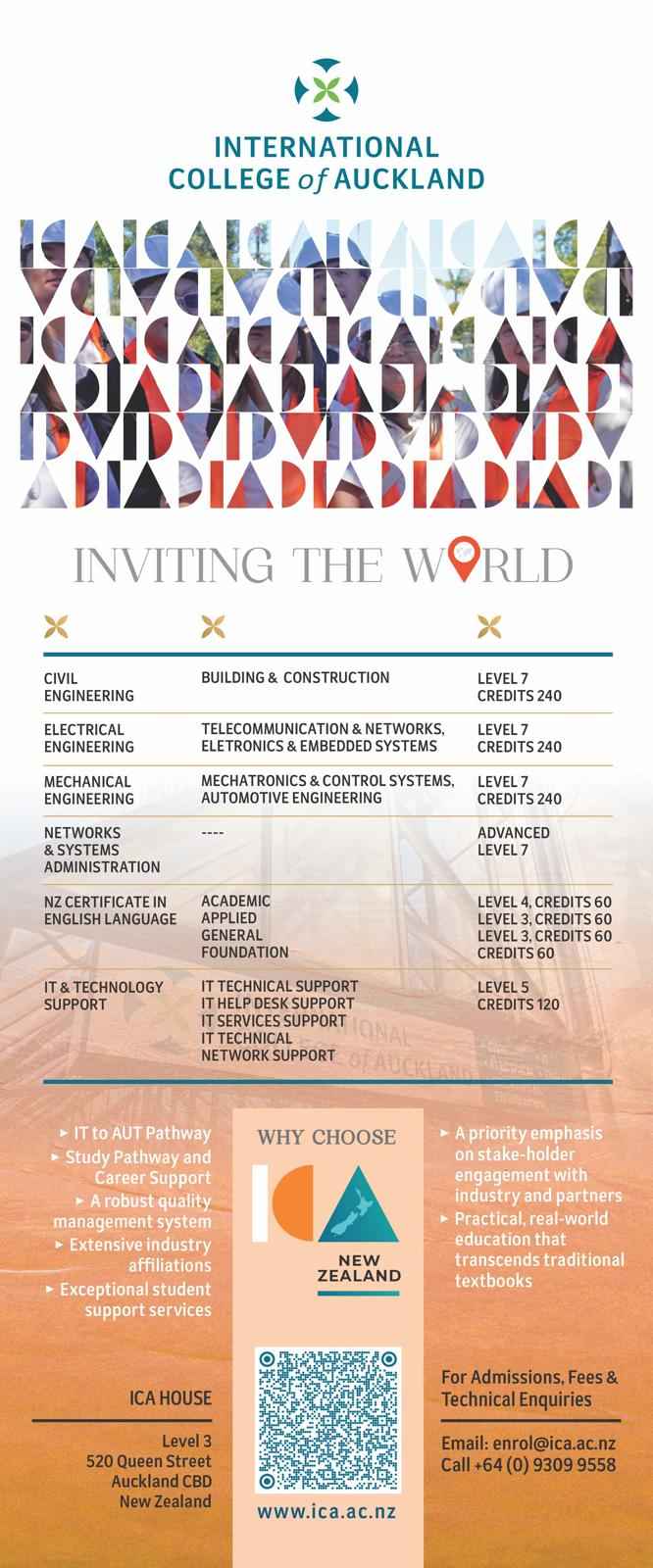Driver licence
You need to be 16 years old or over to drive in New Zealand. All drivers must have a current and valid New Zealand driver’s license, International Driving Permit, or overseas license. You can drive on an overseas license for 12 months. Anyone with a license that is not in English must get an authorized translation.
After 12 months you need to apply for a New Zealand license. Carry your license with you at all times when driving.
To drive a motorbike in New Zealand you must get a motorbike licence. There are three stages to getting a license. You must pass a test at each stage, that is, a written and two practical driving tests.
License conditions: Learner license When learning to drive, you must have a supervisor with you at all times when driving (a person who holds and has held a full license for at least two years). No passengers unless you are accompanied by a supervisor.
Restricted license: You can drive on your own between 5 am and 10 pm. To drive at other times you must have a supervisor with you. No passengers unless you are accompanied by a supervisor.
Full license: You can drive on your own and take passengers at any time.
For more information on how to get a license, see factsheet 45 Learning to drive: how to get your license, available on the NZTA website: www.nzta.govt.nz
Printed brochures for what’s different about driving in NZ: https://www.nzta.govt.nz/resources/driving-in-nz/ (multiple languages)
Rules and restrictions for driving in NZ: https://www.nzta.govt.nz/driver-licences/new-residents-and-visitors/driving-on-nz-roads/
In New Zealand, we drive on the left-hand side of the road. The Police enforce the driving laws and there are penalties for breaking them such as fines, having your license taken off, having your vehicle taken off you, or you can be sent to jail.
You must get a copy of the New Zealand Road Code (the Road Code) and learn the road rules, traffic signs, and signals for driving here. NZTA also has a factsheet for visitors to New Zealand: factsheet 56 New residents and visitors: driving in New Zealand. You can access both the Road Code and Factsheet 56 through the NZTA website, go to: www.nzta.govt.nz. Copies of the Road Code can also be purchased through all larger bookstores.
It is highly recommended you complete a defensive driving course. These courses help drivers, who already have some experience, to learn how to drive safely in New Zealand. Defensive driving courses are available in most towns and cities. Approved course providers
There are two approved advanced driving courses.
Defensive driving course
The defensive driving course is available throughout New Zealand. It is provided by trainers who are affiliated to the AA (New Zealand Automobile Association) Driving School.
AA Driving School www.aa.co.nz/ddc (external link) 0800 223 748
Street Talk
Street Talk courses are offered through the New Zealand Institute of Driver Educators (NZIDE). They can be contacted at:
New Zealand Institute of Driver Educators (NZIDE) www.street-talk.co.nz (external link) 0800 STREET TALK (787338)
Being careful driving
There are four main reasons why people crash or die on New Zealand roads: driving too fast, driving after drinking alcohol, not doing up their safety belts and not giving way at intersections.
Speed - driving too fast
The maximum speed on open roads in New Zealand (roads outside of cities and towns) is 100km/h. This is the fastest you are allowed to drive, and you must follow any speed limit signs that instruct you to slow down. The speed limit in towns and cities is 50km/h, unless speed signs tell you that you can go faster. Speed signs are well sign-posted and can change on the same stretch of road. Whatever the posted speed limit, you should always drive to the conditions – drive slower when it’s hard to see or if it’s raining.
Alcohol
The amount of alcohol that drivers under twenty years of age are legally allowed to drink before driving is so small that it is safer not to drink at all. Driving while over the alcohol limit is illegal (an offence), for which there are severe penalties, including having your licence taken off you, or going to jail.
Safety belts - seat belts
You must always wear your safety belt, whether you are sitting in the front or the back of the vehicle. Drivers and passengers are legally required and responsible for wearing their own safety belts. The driver is also responsible for making sure that children under 15 years of age are wearing their safety belt (children under seven years need to be in an approved child’s car seat). There are fines for not wearing safety belts.
Failure to give way
It’s very important that you know the give way rules (these are in the Road Code, see above for where to get a copy). Otherwise, you could be involved in a serious car accident at an intersection. What happens if you have a car accident?
If you have a crash while driving and are not badly hurt, you must stop and check to see if anyone else is hurt. If someone is hurt, give first aid or find a phone and dial 111 for emergency services (e.g. an ambulance). You will also need to protect the scene to ensure that other crashes do not occur. You must also tell the Police no later than 24 hours after the crash. If no one is hurt, you’ll need to give your name and address (and the name and address of the owner of the vehicle you are driving) as soon as possible but no later than 48 hours after the crash to the owner or driver of any other damaged vehicle and the owner of any damaged property. If you can’t find these owners, tell the Police as soon as possible and no later than 60 hours after the crash.
Owning a car - some important information
Think carefully before buying a car. Unfortunately some international students have had problems with driving or owning cars and some of them have been serious. Owning a car is a big responsibility and can cost a lot. Think about whether you really need one – most New Zealand students find they are too costly. Cars lose value quickly so that when you come to sell you may be disappointed with what money you get for it, or you may not be able to sell it at all.
Once you own a car you need to make sure that it is licensed and has a warrant of fitness (WoF). If your vehicle does not have a current vehicle licence and warrant of fitness you will be fined.
Vehicle licensing
You need to pay a licensing fee to use your vehicle on the road. When the fee is paid you receive a label showing the date it runs out. The label is usually put on the windscreen. You can licence your vehicle at any NZTA agent, for example, any New Zealand Post Shop. You’ll need to renew the licence before the date it runs out. For further information go to: www.ltsa.govt.nz Warrant of Fitness (WoF)
A WoF is a safety check for most cars, vans, utes and many 4WDs. If the vehicle passes, a WoF label is put on the windscreen. You must have the vehicle checked before the expiry date on the label to be issued with a new one. You’re not allowed to drive on the road without a WoF label or if your car is not up to WoF standard. Vehicles first registered anywhere less than six years ago have a WoF check every 12 months; other vehicles have them every six months.
Who carries out the WoF safety check?
Vehicle insurance
If you buy a vehicle, you will need vehicle insurance. Insurance fees are usually higher for people under 25 years old and may also depend on your driving history and the type of vehicle you own. You have four options: Full cover standard
Covers accidents, theft, fire, vandalism, and storm damage, plus damage to someone else’s vehicle or property. This option costs the most.
Agreed cover as above but you and the insurance company agree on the value of your vehicle (current market or retail value) and the amount to be paid out if your vehicle is damaged beyond repair when you take out the insurance.
Third-party, fire, and theft cover against fire and theft on your car and cover against damage to someone else’s vehicle or property.
Third-party Covers damage that you cause to another vehicle or another person’s property. The cheapest option, but doesn’t cover the cost of repairing your vehicle. Important
If your vehicle is not registered and/or does not have a current WoF, or if you are driving without a valid licence your insurance company will not pay out if you have an accident. Further information about vehicle insurance is available electronically from the Insurance Council of New Zealand at http://www.icnz.org.nz/consumer/motor/index.html
Tourist/visitor/international student driving quiz in 4 languages:

